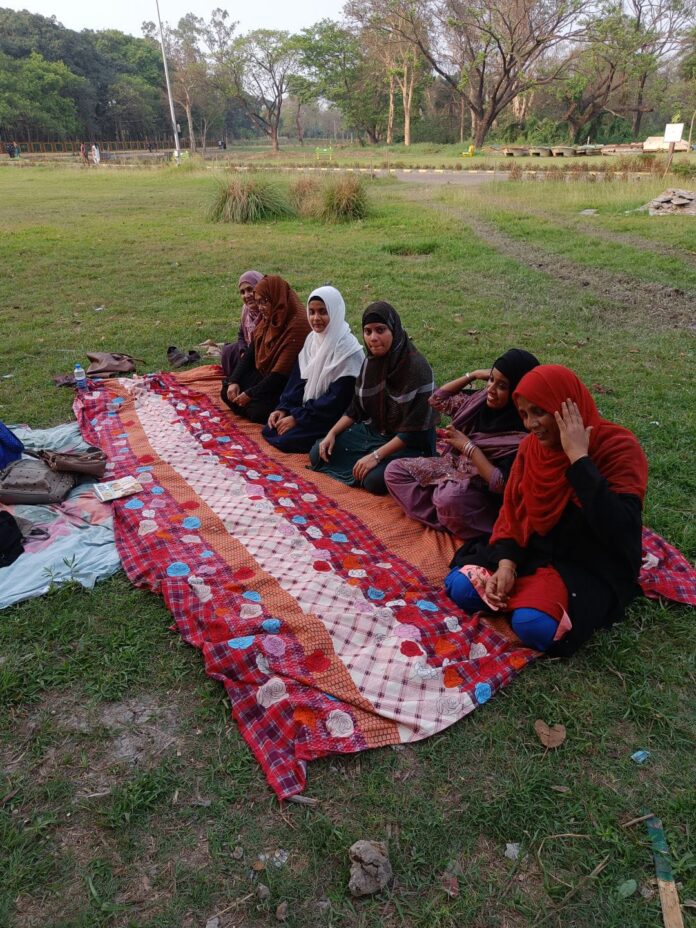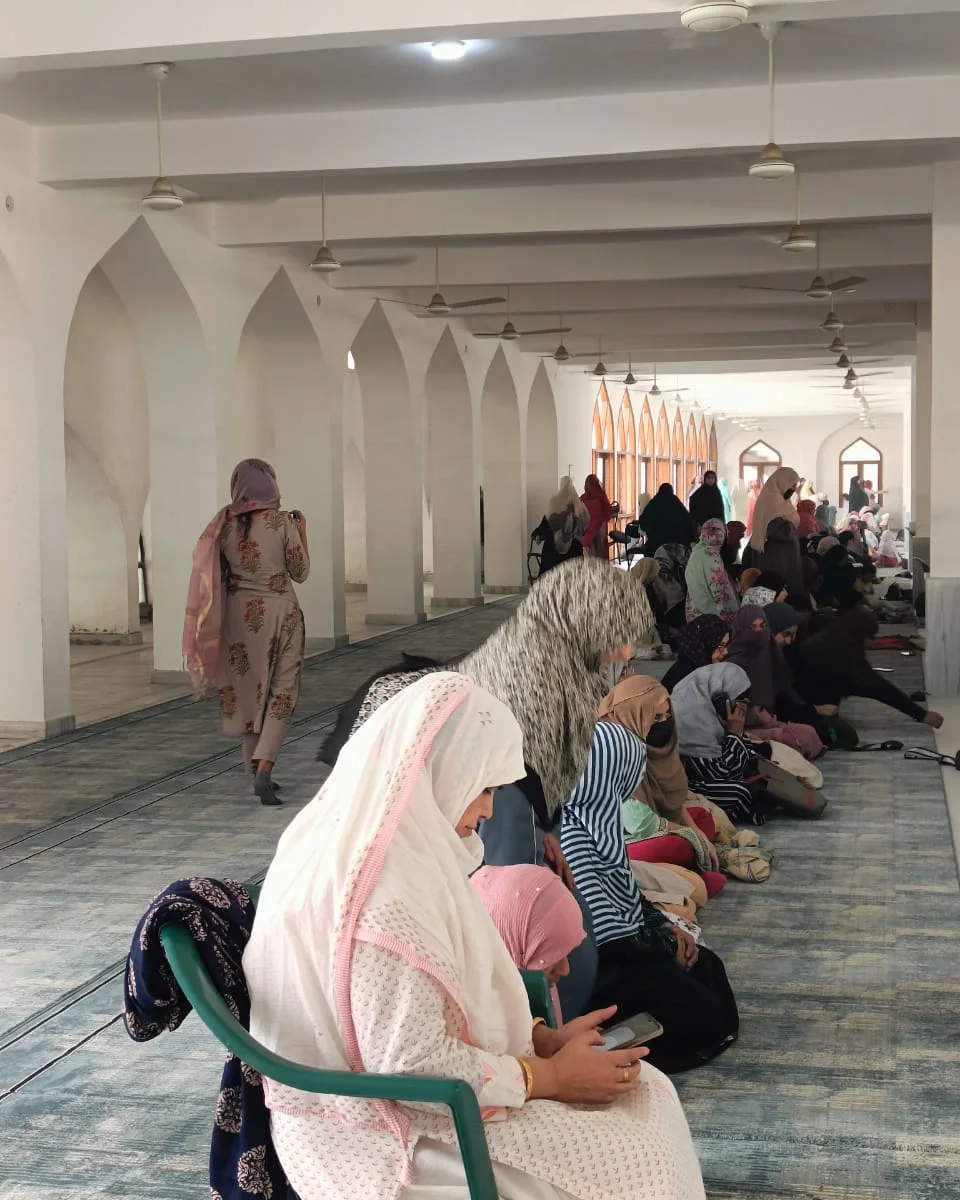Kolkata, WEST BENGAL:
POSTGRADUATE DIPLOMA IN MANAGEMENT (PG)
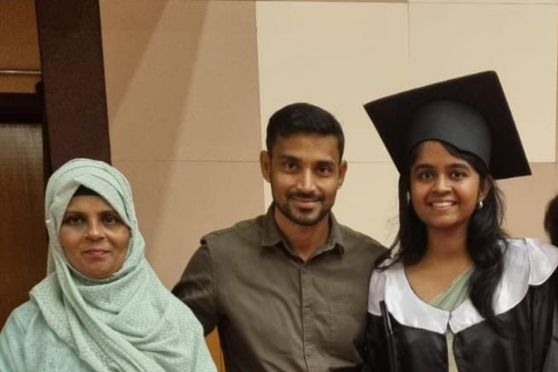
Farheen Masood with her family. The Telegraph Online Edugraph
Summary
- In the heart of bustling Kolkata, where the cacophony of life reverberates through narrow alleyways, there lies a tale of grit, determination and unyielding hope.
- Meet Farheen Masood, a champion of resilience whose journey from humble beginnings to corporate corridors is as inspiring as it is extraordinary.
In the heart of bustling Kolkata, where the cacophony of life reverberates through narrow alleyways, there lies a tale of grit, determination, and unyielding hope. Meet Farheen Masood, a champion of resilience whose journey from humble beginnings to corporate corridors is as inspiring as it is extraordinary.
Chapter 1: A Dream Ignited
She was raised in a modest household by hardworking parents who were filled with aspirations – her father a security guard and her mother a homemaker.
“My mother could not complete her schooling although she was a good student. That is why she was always keen on us (she and her two siblings) completing our education. Despite our financial struggles, she instilled in us the belief that education was the key to unlocking a better future. My mother became my source of inspiration,” reminisced Farheen, her voice reflecting the unwavering resolve that would come to define her journey.
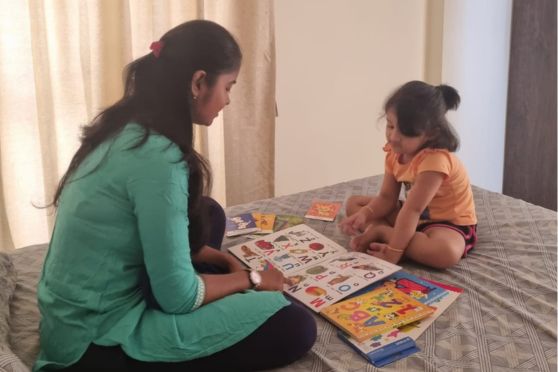
Farheen giving tuition to a child in her neighbourhood. The Telegraph Online Edugraph
Chapter 2: Echoes of Empowerment
As the days unfolded, Farheen found inspiration within the corridors of AK Fazlul Haq School and Khalsa English High School. It was there that she discovered her passion for public speaking. “What I am today, in terms of my confidence in speaking and everything else, is due to the education I received in my schools. I used to participate in monthly debates and extempore competitions and my teachers would always motivate me. That helped sharpen my communication skills,” she shared with us in words that echoed the profound impact of her formative years.
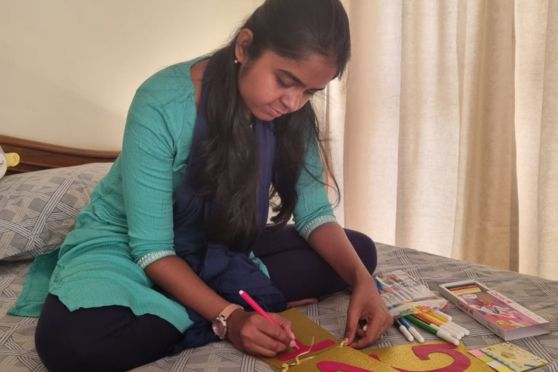
Busy with her art and craft engagements. The Telegraph Online Edugraph
Chapter 3: A Path Revealed
Today Farheen stands tall empowered with a Post Graduate Diploma in Management (PGDM) degree with specialisation in Analytics and Marketing from Praxis Business School and working as a Management Trainee (Operations) at DHL Global Forwarding. So what inspired her to pursue studies in this field?
She recalled, “Though I initially opted for the science stream in my plus 2, I soon realised that my heart was not in it. That is when my uncle guided me to consider management studies. He told me about all the career opportunities that would open up for me if I did a PGDM/ MBA degree; and that would help me achieve the success I had always dreamed of.”
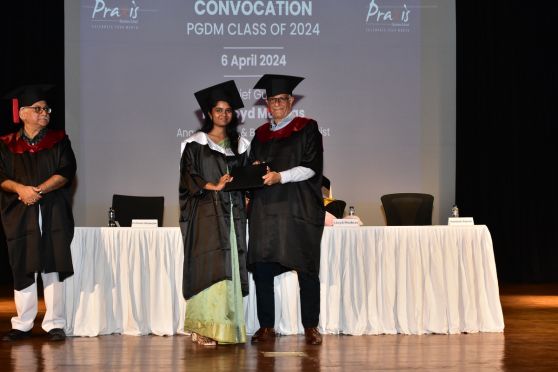
A shot from her convocation ceremony day. The Telegraph Online Edugraph
Chapter 4: Praxis: A Journey Within
At business school, amidst the nurturing learning environment, Farheen’s metamorphosis began. “After joining , I was made a Placecom member. I was responsible for coordinating the students’ placement process, acting as a bridge between them and our college’s placement cell. It gave me the opportunity to connect with various HR heads, thereby helping me make connections. I felt more confident through meeting and speaking with new people. Moreover, I learned management skills which gave me the confidence to handle challenging situations,” she said while recounting the perks of studying in a truly enabling educational environment.
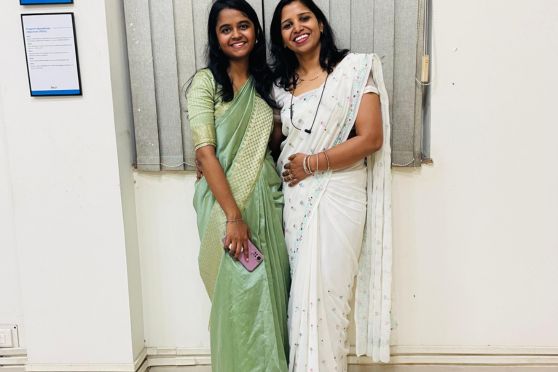
Farheen posing with her teacher. The Telegraph Online Edugraph
Chapter 5: The Tapestry of Experience
Further into the conversation we learned that, in her bid to craft a successful career path, alongside excelling in her PGDM programme at Praxis, Farheen had also gained real world experience through an array of internships with reputable brands spanning fundraising, sales and digital marketing. “Internships gave me practical training before entering the corporate workplace. I had done fieldwork too. That opened up different aspects of business management to me. I met new people and expanded my network. Also, I learned that if one has an idea, one needs to voice it. Not wait for the person on the other side to ask,” she affirmed, emphasising the importance of hands-on learning.
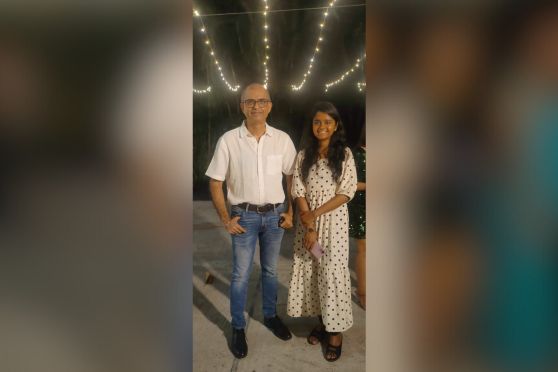
Farheen with Charanpreet Singh, Co-founder and Director, Praxis Business School, Kolkata. The Telegraph Online Edugraph
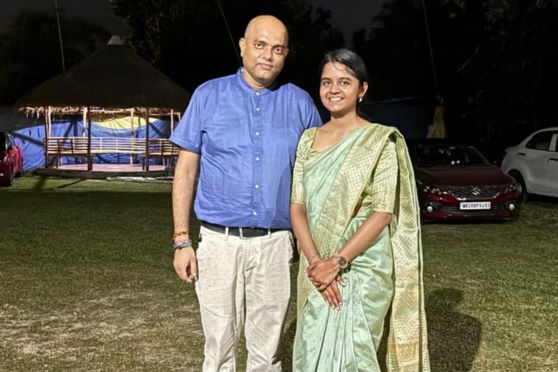
Farheen with Praxis management. The Telegraph Online Edugraph
Chapter 6: Words of Encouragement
While Farheen gazed upon the gamut of her achievements, we asked what would her advice for young people who are striving against life’s challenges be.
“One should not stop dreaming!” she proclaimed, her words infused with the determination of a go-getter. “Always be eager to learn, stay kind and just keep going. The avenues will open up sooner than later,” she said confidently.
As the sun set over the city of Kolkata, casting its golden hues upon the distant horizon, Farheen Masood appeared before us as an embodiment of the indomitable human spirit!
From humble beginnings to soaring heights, Farheen’s journey reinforces the transformative power of education yet again and serves as a source of hope for generations to come, irrespective of their challenging circumstances!
source: http://www.telegraphindia.com / The Telegraph Online / Home> Edugraph> Career / by Sejuti Roy / April 17th, 2024
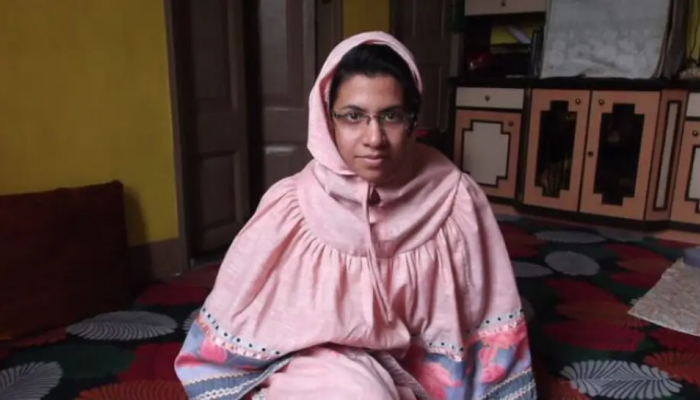)
